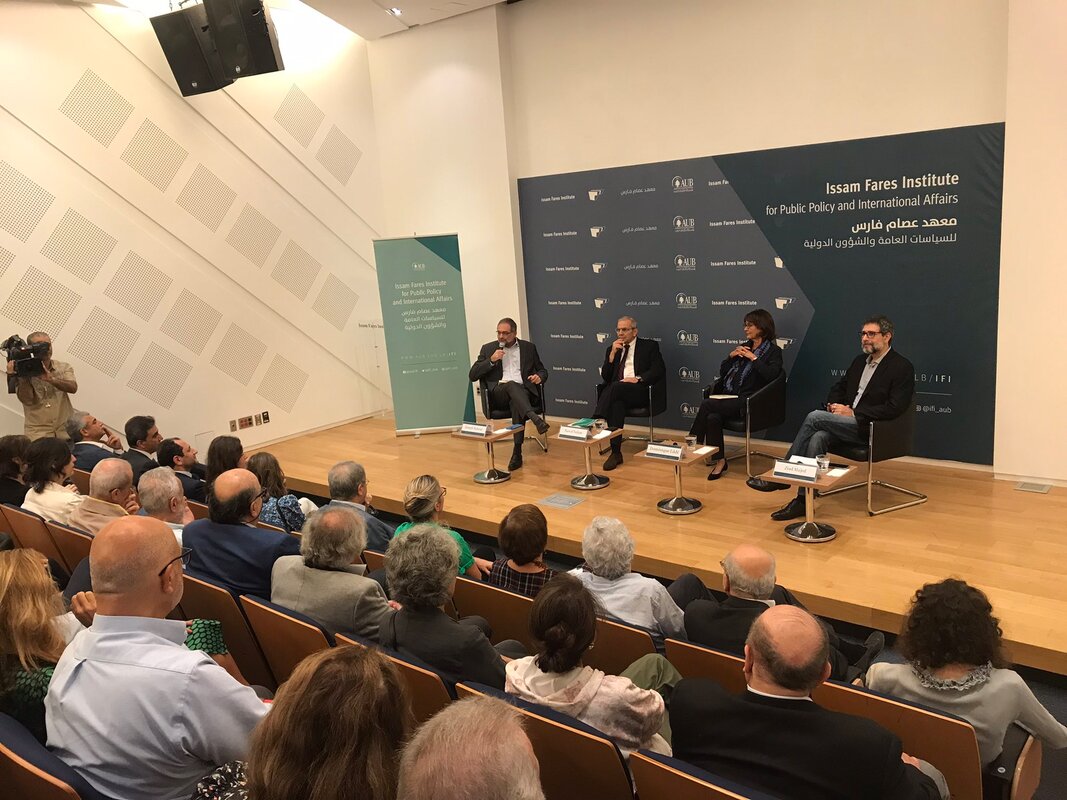|
Within the framework of the Festival Beyrouth Livres 2022, IFI, L’Orient littéraire and L’Institut français held a book discussion of “Le Liban d’hier à demain,” by Amb. Nawaf Salam on October 27. In the presence of the author, the panel discussion included Dominique Eddé, Lebanese novelist, Ziad Majed, Professor and political researcher and IFI Director Joseph Bahout, who also moderated the discussion.
Within the framework of the Participatory Hub for Effective Mapping, Acceleration and Capitalization (PHEMAC) project, the Climate Change and Environment (CC&E) Program at IFI held the PHEMAC Innovation Week on October 10-11, gathering local and international partners to discuss the Water-Energy-Food (WEF) Nexus and meet startups working to tackle Nexus challenges. The event gathered researchers, policy makers, investors, industry players, SMEs, startups and entrepreneurs working in the fields of the WEF Nexus.
|
Archives
July 2024
|

